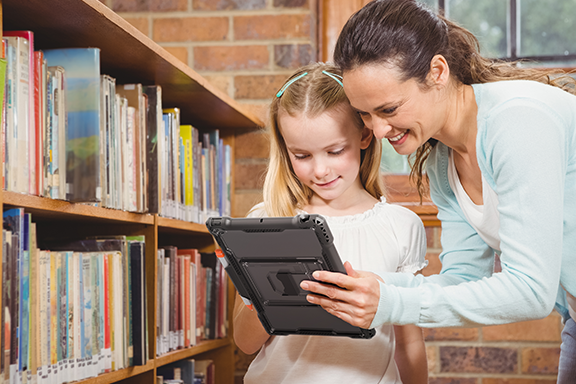
"When people don't have a routine or structure to their day it can cause increased stress and anxiety, as well as overwhelming feelings, lack of concentration, and focus."
— RACHEL GOLDMAN, PhD
Psychologist and clinical assistant professor at the NYU School of Medicine
Why Routines are Important for Mental Health
If you want to understand how important routines are, you needn’t look any further than your own experience from when your children were toddlers. Remember the unexpected meltdowns and temper tantrums? The inconsolable wails of despair over seemingly insignificant things? Unexpected, that is, until you realized that you hadn’t given them lunch yet, and it was a bit past their lunchtime. Or they had stayed up just a bit past their bedtime.
Having a routine helps keep people (including kids!) focused and productive and reduces anxiety. There’s comfort in knowing what needs to be done next. This is true no matter a person’s age - though as we develop we become a bit more sophisticated about expressing our hunger for structure.
The benefits to be gained from an effective routine are especially notable during times of increased stress and turmoil. For example, during a pandemic and an unprecedented transition to remote and hybrid learning! A good routine helps keep us grounded and gives us direction.
How Parents Can Help
Is your school providing remote learning within a solid school-day schedule? If yes, that's something to be grateful for. As a parent, you can further help your child become accustomed to this fall's unusual education environment by building on the routine the school provides. Here are some things you can do:
Create a home "lunchroom." Make sure there are designated spaces for studying, as well as breaks and lunch. Setting aside spaces for particular activities isn’t new - for example, many couples have a “no TV in the bedroom” policy. Keeping areas separated by function primes people (miniature ones included) to think, feel and behave in a way associated with that activity. Doing this will lead to more focused study sessions and more restful breaks.
Schedule outside time. Never underestimate the value of fresh air, moving your body and spending time in
nature.
Plan for downtime.Though our culture views busyness as a status symbol, there has been a recent shift towards a more humane approach towards productivity. This new approach recognizes the crucial role that rest plays in our health, wellbeing and, yes, even productivity. So make sure you leave enough time for rest and relaxation.
Include time for family connection. Whether walks, games or family meals, plan for some time you can spend together as a family doing something you all enjoy.
Let Your Child Take the Lead (Within Reason)
ncluding your child in the planning process will give them a sense of independence and control, while teaching them how to effectively manage their time. As a rule of thumb: the older they are, the more say they should have in what their routine will look like. For example, if you have a teenager, they should probably come up with their routine themselves - with you offering suggestions and maintaining veto power. Younger children, on the other hand, might need a bit more structure from you, but it’s still worth giving them a say in things.
Finally, make sure to leave some time unstructured. Doing this will allow your child to proactively look for ways to entertain themselves and learn to manage boredom.
Make It Stick
Once you have a routine that you’re happy with, your next challenge will be to adhere to it. The key? Consistency.
Children look to the adults in their lives for structure and order. If you always respond the same way to certain behaviors (good or bad), they learn to predict your reactions and change their behavior accordingly. Living with adults who are predictable gives children a sense of security. So while establishing a routine, praise and reward your children for sticking to it. As far as consequences go, how and when you choose to enforce them is largely a matter of parenting style. You know best what your child responds to.
Last But Not Least
Downtime isn’t just for children, it’s for adults too. Yes, even busy parents. Safety instructions on planes are very clear: put your own oxygen mask first, before attending to your child. It might seem counterintuitive, but who will take care of them if you faint?
So give yourself some time to do whatever it is that you enjoy -- whether it’s crocheting, sky-diving or looking at cat memes. It’s the psychological equivalent of an oxygen mask. Having content parents will do much more for your child’s well being than being perfect at ________ (you can fill in the gap yourself).


